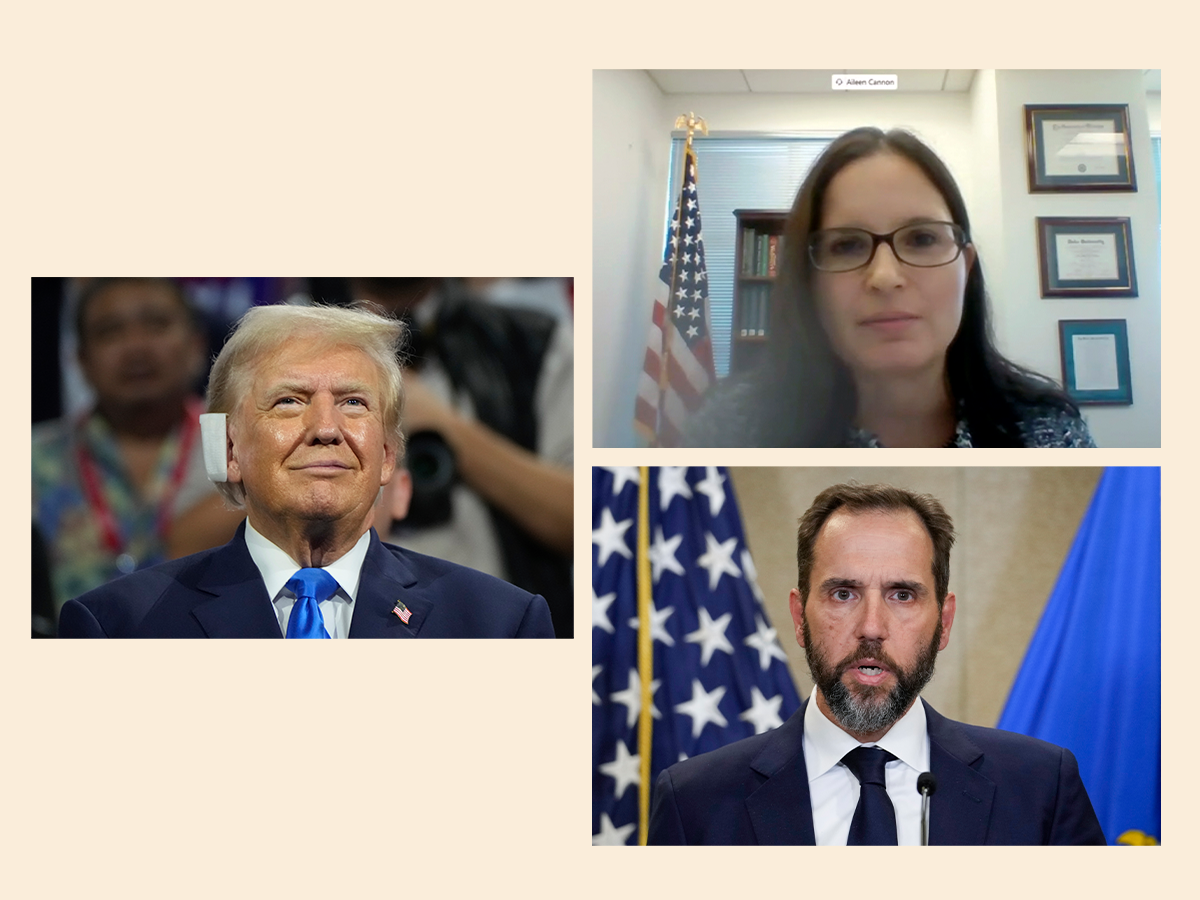Modern Messiah
Diamond Member
- Nov 22, 2024
- 1,594
- 1,438
- 1,918
Your TDS is spilling over again.
I guess you have nothing more to say.
It's OK.
Better luck next time
Follow along with the video below to see how to install our site as a web app on your home screen.
Note: This feature may not be available in some browsers.
Your TDS is spilling over again.
You are correct. I stand corrected.The supreme Court never ruled on Jack Smith's appointment
Sure dude.He won't be, and you guys will long out of power for a long time.
Your article doesn't say anything to support that..................You are correct. I stand corrected.
The closest it got to the SCOTUS was Aileen Cannon being overruled when she tried to call Smith's appointment unconstitutional.
Can the Attorney General Appoint a Special Counsel? - Podcast | Constitution Center
Podcast for Can the Attorney General Appoint a Special Counsel? from the National Constitution Centerconstitutioncenter.org

You are correct. Score yourself a win.No kidding? It never went to SCOTUS......

You haven't read the article.Your article doesn't say anything to support that..................
She was never overruled.You are correct. Score yourself a win.
After Aileen Cannon was overruled in calling it unconstitutional it hasn't gone anywhere on appeal. So the official legal standing thus far is that Smith's appointment was constitutional. Typical MAGAt Delldud......even when you "win" you lose.
Can the Attorney General Appoint a Special Counsel? - Podcast | Constitution Center
Podcast for Can the Attorney General Appoint a Special Counsel? from the National Constitution Centerconstitutioncenter.org
No, it is not.My peers are The American People.
312>226
I know you didn't.You haven't read the article.
The SOL hadn't expired.
#1 SOL for felony is much longer.
#2 SOL does not accumulate for time spent outside the state. You know while he was in Florida and DC?
This was all litigated and the claim that the SOL had expired was false.
WW
Go ahead and link us up with those facts.
A good guess is that Smith, along with others, thought they had a free ride as long as a doddering old fool was in the W.H.
A good guess is that Smith, along with others, thought they had a free ride as long as a doddering old fool was in the W.H.
No son, that means her ruling stands unless overturned on appeal.After Aileen Cannon was overruled in calling it unconstitutional it hasn't gone anywhere on appeal. So the official legal standing thus far is that Smith's appointment was constitutional.

Special counsels have been around for decades. From the 1970s until the late ’90s there was the independent counsel statute, which provided for a much more independent special prosecutor than what Attorney General [Merrick] Garland authorized in this matter. The Supreme Court upheld the statute in Morrison v. Olson, but it expired in 1999. After its expiration, DOJ implemented its own regulations providing for the appointment of special counsels who possess functions similar to U.S. attorneys. In 2020, in an Appointments Clause case involving the Consumer Financial Protection Bureau, the Supreme Court essentially reaffirmed Morrison v. Olson as a valid exception to a general rule about appointments.She was never overruled.

I didn't see anything that proves your point.
Special counsels have been around for decades. From the 1970s until the late ’90s there was the independent counsel statute, which provided for a much more independent special prosecutor than what Attorney General [Merrick] Garland authorized in this matter. The Supreme Court upheld the statute in Morrison v. Olson, but it expired in 1999. After its expiration, DOJ implemented its own regulations providing for the appointment of special counsels who possess functions similar to U.S. attorneys. In 2020, in an Appointments Clause case involving the Consumer Financial Protection Bureau, the Supreme Court essentially reaffirmed Morrison v. Olson as a valid exception to a general rule about appointments.
One very surprising thing is how Cannon deals with the Supreme Court precedent in United States v. Nixon. There’s a sentence in that 9-0 opinion which resolves this issue entirely. The sentence says that Archibald Cox, who was one of the prosecutors of Nixon, was appropriately appointed pursuant to the statute. And you would have thought that would have ended this inquiry. Cannon does something I think I’ve never seen a district judge do before, which is that she looks into the history of the Nixon case, decides the issue wasn’t particularly briefed, and as a result determines that a sentence in a Supreme Court opinion that was decided 9-0 was, in fact, “dicta,” which means that it is not binding in subsequent cases as legal precedent. And as a result, she as a district judge was entitled to disregard it. I’ve never seen a district court conclude that a portion of a Supreme Court opinion is not binding; that was a first for me.

What the judge was thinking and what’s next in Trump documents case — Harvard Gazette
Obama-era White House counsel says key point in Nixon decision should have ended inquirynews.harvard.edu

kind of the same with Trump's felony convictions right?No son, that means her ruling stands unless overturned on appeal.

Lose your argument and change the topic....kind of the same with Trump's felony convictions right?
